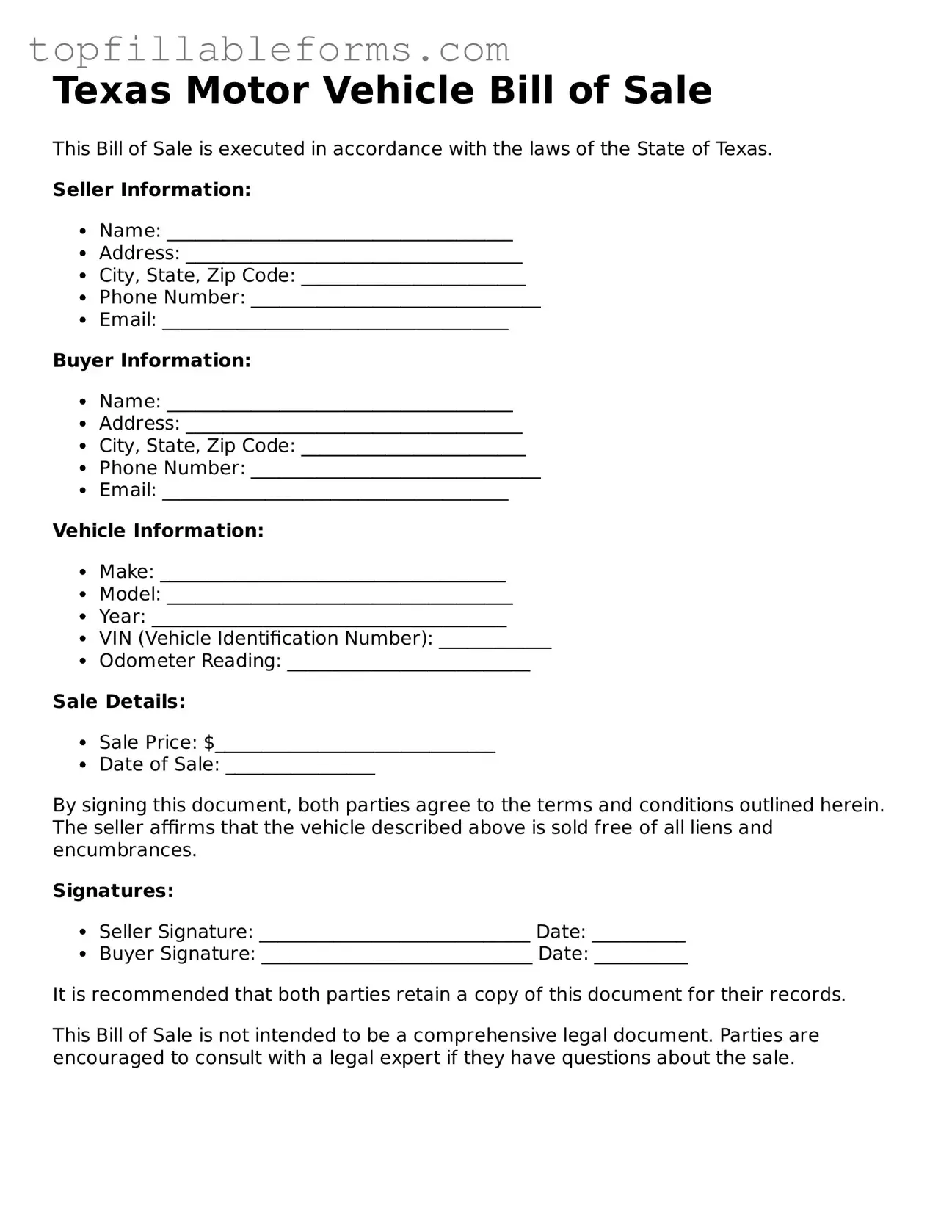Attorney-Verified Motor Vehicle Bill of Sale Template for Texas
The Texas Motor Vehicle Bill of Sale is a legal document that records the transfer of ownership of a vehicle from one party to another. This form serves as proof of the sale and includes essential details such as the vehicle's description, sale price, and the names of both the buyer and seller. Understanding this form is crucial for anyone looking to buy or sell a vehicle in Texas.
Open Motor Vehicle Bill of Sale Editor Here

Attorney-Verified Motor Vehicle Bill of Sale Template for Texas
Open Motor Vehicle Bill of Sale Editor Here
Finish the form now and be done
Finish your Motor Vehicle Bill of Sale online by editing, saving, and downloading fast.
Open Motor Vehicle Bill of Sale Editor Here
or
▼ PDF File
